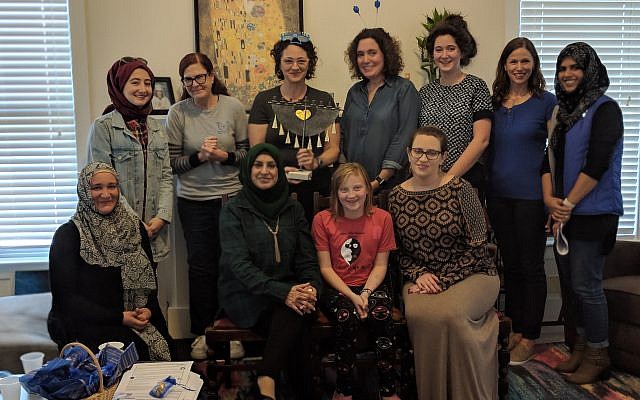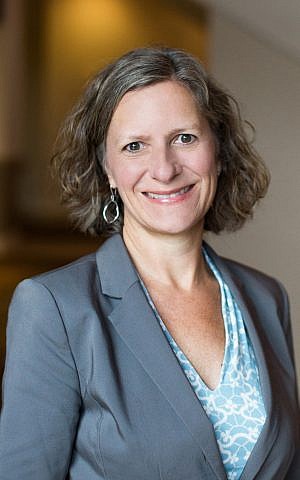Athens School District Leads State with Religious Tolerance Policy
A local school district may be the first in Ga. to establish a religious tolerance policy that will recognize and equitably treat the religious rights of students and teachers.

This week an Athens school district may be the first in the state to establish a religious tolerance policy that will recognize and equitably treat the religious rights of students and teachers. The policy would also provide guidelines for teaching about religion, allowing absences for holiday observances and accommodating dietary restrictions.
The Clarke County School District was to vote on the religious beliefs policy on Dec. 13, after a policy subcommittee approved the proposed policy and submitted it for 30 days of public comment. The proposal had received only positive public comments by press time, and the Board of Education was expected to approve it.
The initiators of the policy proposal, it would seem, had knocked on an open door.
Raising her hand to launch that effort was Melisa Cahnmann-Taylor, a professor at the University of Georgia in the Department of Language and Literacy Education. She teaches classes on bilingual education, language and culture. Recently, she received a grant from the National Education Association to “promote understandings of difference through literature.”
She had been focusing on Latino and African-American communities when she realized that her own Jewish community was in turmoil because friends of hers were not bringing their children to High Holiday services out of concern that they’d miss tests in their public-school classes. “My son is in middle school next year, so this became an issue for me,” Cahnmann-Taylor told the AJT. The board of directors at Congregation Children of Israel, her Reform synagogue, had been talking about writing a letter to the local school district, “but there was no follow-through. So, I decided to do it.”

She drafted a letter, sent it to several Jewish people she knew, and eventually edited a final draft with the synagogue’s Rabbi Eric Linder. “He already had a relationship with the new superintendent of the Clarke County School District, Dr. Demond Means. We met with him right after Yom Kippur. He was immediately responsive. He told us that we needed more than a memo to distribute to the schools. We needed a policy.”
Remembering the meeting, Cahnmann-Taylor called it a “beautiful moment, coming from an African-American male. I heard from someone who was not in my tribe, honorably talking about my religious needs. It’s so unique to have another minority person deeply ‘get it.’”
Means directed Dawn Meyers, associate superintendent of policy and school support systems, to look for a model policy, but she couldn’t find one in Georgia. Finally, after a search, she found a policy in a Pennsylvania school system after which she could model one for the Clarke County School District.

The policy was necessary, Meyers explained, “because we didn’t have it. We had some practices, but no clarity. It’s not enough to have a calendar that doesn’t conflict (with religious holidays). The policy will be a best practice for all schools and it aligns with our strategic priorities. Those priorities include the social/emotional growth of the students and educational equity.”
“When the superintendent handed me the letter from the Jewish community, I was primed,” Meyers said. She noted her personal experience when one of her daughter’s volleyball teammates showed up for a game after school, out of uniform. Rachel explained that since she was absent from school that day for a Jewish High Holiday, she thought she couldn’t play. But in fact, if you miss a school day for a religious holiday, it is okay to play. I call this the Rachel part of the policy.”
The policy addresses more than excused absences for religious holidays. It also includes direction about the teaching of religion. “The board endorses teaching about religion only where the curriculum guides indicate it is appropriate and when the classroom atmosphere encourages both teachers and students to be responsible and to respect the rights of each person,” the policy states.
Rabbi Linder says he’s a firm believer in the separation of church and state, but in some schools, “in an effort to follow this, they’ve avoided talking about religion at all. There are ways to discuss religion without proselytizing.”
According to Meyers, “there’s been widespread good feelings about this policy. We live in a community that has a lot of engaged citizens in public education. Dozens of people attend the school board meetings on a regular basis. Personally, I’m excited about this policy. When my oldest kid was in kindergarten, his best friend was named Muhammed. The boy’s parents were at UGA and were Muslim. I was mentoring the mother when I received a message from a room mother about holding a Christmas party. I wrote to the principal that it shouldn’t be a Christmas party, but a holiday party. I wondered, how will Muhammed’s mother feel about this?”
She added, “This isn’t Jewish policy.” It affects many in the diverse Athens area.
Initially, Cahnmann-Taylor received some push-back from other Jews, who were primarily from the South. Cahnmann-Taylor is originally from Chicago. “They disapproved of making ourselves visible. They said, why make a fuss?” She acknowledged that there’s risk to making a fuss, but feels it is worth it.
Rabbi Linder has seen some isolated anti-Semitic bullying in the community and some insensitive teaching of the Holocaust, but nothing systemic. “Athens is open to this. It’s not been controversial.” He also noted that among the 175 members of his congregation, several are teachers.
“For me,” the rabbi says, “the fact that there’s a policy is as important as what it says.”



comments